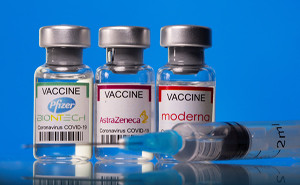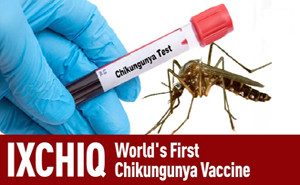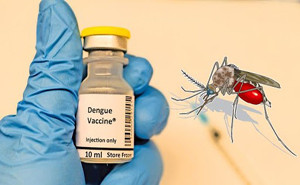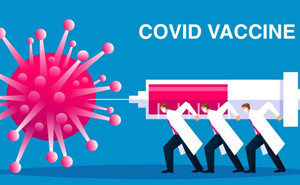Featured
Vaccine Journal: Published: February, 2024A multinational Global Vaccine Data
Network (GVDN) cohort study of 99 million vaccinated individuals.This study aimed to evaluate the
risk of adverse events (13 medical conditions) of special interest (AESI)
following COVID-19 vaccination from 10 sites across 8 countries. Most vaccine
recipients were in...
The US
Food and Drug Administration have approved the world's first vaccine Ixchiq for
chikungunya. “Infection with chikungunya virus can lead to
severe disease and prolonged health problems, particularly for older adults and
individuals with underlying medical conditions,”The most common symptoms of
chikungunya include fever and joint pain. O...
Dengue fever has been a significant
public health issue in Bangladesh over the years. Our country has experienced
periodic outbreaks of dengue, particularly during the monsoon season when the
mosquito population increases. The dengue outbreak in Bangladesh
has taken a worrisome turn as the number of cases and fatalities continues to
rise, sign...
The Lancet: Published on September, 2022A
promising malaria vaccine was up to 80% effective at preventing the disease in
young children who received a booster shot at one year following a primary
three-dose regime maintained high efficacy against malaria, and continued to
meet the World Health Organization’s Malaria Vaccine Technology Roadmap g...
Malaria is a life-threatening disease caused by Plasmodium parasites,
which are spread to humans through bites of infected mosquitoes.The World Health Organization (WHO) is recommended on October
2021, widespread use of the RTS,S/AS01 (RTS,S) malaria vaccine among children
in sub-Saharan Africa and in other regions with moderate to high P.
falc...
The Pediatric Infectious Disease Journal:
Take Home Message:
Diarrheal
disease is a leading cause of childhood morbidity and mortality globally.
Rotavirus is the leading cause of
vaccine-preventable diarrhea among children under 5 and is associated with
approximately 28% of diarrheal deaths. The highest burden of severe disease and
d...
The New England Journal of Medicine
TAKE-HOME MESSAGE
This retrospective study evaluated
the effectiveness of the Pfizer (BNT162b2) COVID-19 vaccine in preventing
reinfection in patients who had recovered from COVID-19.
A total of 149,039 patients who had
recovered from COVID-19 were included, and, of these, 56% were subsequently...
The New England Journal of Medicine
Real-world studies have shown the
short-term effectiveness of vaccines with respect to symptomatic and
asymptomatic severe acute respiratory syndrome coronavirus 2 (SARS-CoV-2) infections,
the severity of Covid-19, and secondary transmission. The duration of this
protection over longer periods remains...
Effectiveness
of Maternal Vaccination with mRNA COVID-19 Vaccine during Pregnancy against
COVID-19–Associated Hospitalization in Infants Aged
BMJ: British Medical Journal
This
retrospective case series analysis compared the incidence of immune-mediated
neurologic events among over 8 million individuals vaccinated against COVID-19,
over 700,000 unvaccinated individuals diagnosed with COVID-19, and a historical
cohort of over 14 million individuals in the general population....
American Journal of Obstetrics and Gynecology:
Key findings
Vaccine-generated antibodies were
present in umbilical cord blood and breastmilk after maternal vaccination.
Pregnant and lactating women
elicited comparable vaccine-induced humoral immune responses with nonpregnant
controls and generated higher antibody titers than those o...
Coronavirus (COVID-19) Vaccine Update:
Take Home Message:
A single booster dose of the Pfizer
COVID-19 vaccine can be given to 5- to 11-year-olds to provide continued
protection against COVID-19., the U.S. Food and Drug Administration announced.
The third shot can be given at
least five months after healthy children complete the two...












